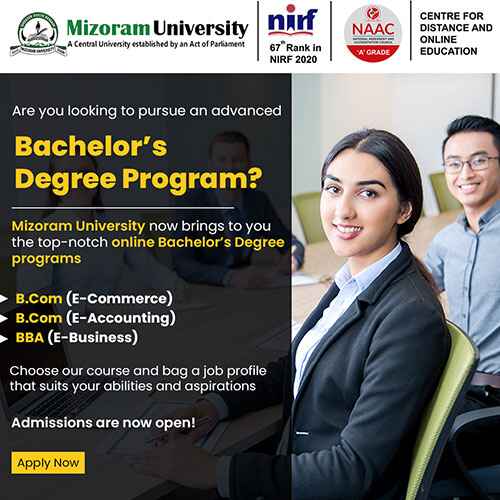Written By: Mizoram University Online Editorial Team
Earning a Master of Arts in Education is an admirable achievement, but it's just the beginning of your professional journey. As an MA Education graduate, you're equipped with a wealth of knowledge and skills that can open doors to a wide range of career opportunities. In this blog, we'll explore various pathways to success for MA Education graduates, offering insights and strategies to help you navigate the ever-evolving field of education and advance your career.
Teaching and Classroom Leadership
One of the most common career choices for MA Education graduates is to become a classroom teacher. With your advanced degree, you can specialize in a particular subject or area, such as special education, English as a Second Language (ESL), or educational technology. Your expertise can make you a highly sought-after educator, leading to opportunities for leadership positions within schools and districts. Pursue additional certifications or endorsements to increase your marketability and impact as an educator.
Educational Administration
If you aspire to influence the educational system on a broader scale, consider a career in educational administration. You can become a principal, assistant principal, or even a superintendent, where you'll have a significant impact on shaping school policies, curriculum development, and student success. Advanced degrees, such as a Master's in Educational Leadership, can be a great complement to your MA in Education.
Educational Consulting
Many organizations, both public and private, seek the expertise of education consultants to improve their instructional strategies and overall educational outcomes. Your MA in Education equips you with the knowledge to analyze educational practices, develop training programs, and offer valuable insights for schools, districts, and ed-tech companies.
Curriculum Development
MA Education graduates can make a significant impact by working on curriculum development teams. You'll play a crucial role in designing and implementing effective educational materials that meet current standards and best practices. Curriculum developers often work with educational publishers, non-profit organizations, and government agencies.
Educational Technology
As technology becomes increasingly integrated into education, there's a growing demand for professionals who can bridge the gap between pedagogy and technology. With your education background, you can become an instructional designer, e-learning specialist, or educational technology consultant. Stay updated on the latest trends in educational technology to stay competitive in this field.
Adult Education
Teaching doesn't always mean working with children. Consider a career in adult education, where you can teach in community colleges, adult education centers, or even online platforms. Your MA in Education provides a solid foundation for instructing adult learners and helping them achieve their career and personal development goals.
Nonprofit and Advocacy Work
If you're passionate about making a difference in the field of education, consider working for educational non-profits or advocacy organizations. These roles often involve lobbying for educational policy changes, supporting underprivileged communities, or promoting educational equity.
Higher Education
Another pathway for MA Education graduates is to pursue roles in higher education. You can teach in colleges or universities, contribute to educational research, or work in student affairs, academic advising, and admissions.
Entrepreneurship
For those with an entrepreneurial spirit, consider starting your educational consulting business, developing educational software, or creating online courses. Your MA in Education equips you with the knowledge to identify and address gaps in the educational market.
Conclusion
As an MA Education graduate, the possibilities for your career development are vast. By exploring these various pathways to success, you can leverage your expertise to make a meaningful impact in the field of education. Keep in mind that continuous learning, networking, and adapting to the evolving needs of the educational landscape are key to a successful and fulfilling career. Whether you choose to teach, lead, consult, or innovate, your dedication and passion for education will undoubtedly shape the future of learning and inspire the next generation of educators.

